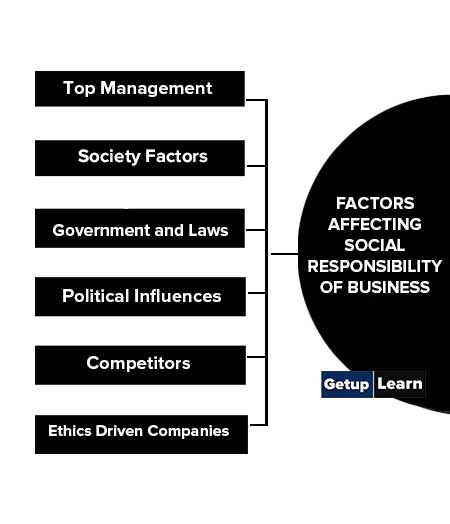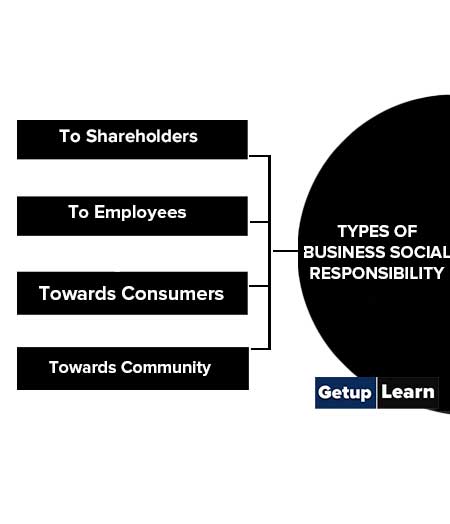Table of Contents
The social responsibility of business means that what business does more than what law has directed to do for Society. This shows that it is more than the legal obligation of the business. This is not a compulsion but an ethical voluntary work of the business.
The business does not work in isolation, there are many stakeholders from the society some are directly related to the business and many who are not related are also indirectly connected with the activities of the business. The shareholders, consumers, suppliers and the resources used and the local community all are part of this business.
In the twentieth century no business can be the sole private business it is directly connected with the workers, management, consumer of the local communities, government and all unions are also part of the business.
There are two views on social responsibilities. One is the Classical view and the other is the Contemporary view. Which we will discuss in brief:

Classical View
The Classical view says that business is for economic activities not for Non-Economic activities. So the only responsibility of the business is to increase the profit of the business to business in the market and under established law.
Contemporary View
The contemporary views are different, according to their business is a part of society and remains under the defensive umbrella of the society and has im- important obligations to serve society. There are many cautious voices that want to define that business should cautiously approach terms of social responsibilities. The suggestions for the business in terms of social responsibilities are as follows.
- The direct stakeholders are more important and meeting their expectations are first priority. Then businesses should also think about social responsibility.
- Profit is the most important priority for the business.
- The long-run objective of the business must be the all-around welfare of society.
- The extent to which business has the power to influence the society that will be the limit to do welfare of society and the business.
- Social responsibility is related to the magnitude and the size of the company and the industry.
- The business should take only those social responsibilities which the business has understanding without understanding business should not take any social responsibility.
- Businesses must take on some social burden to compensate for the negative external effects produced by the business.
The followings are the factors affecting the social responsibility of business:
- Top Management
- Society Factors
- Government and Laws
- Political Influences
- Competitors
- Ethics Driven Companies

Top Management
Top management is the most important factor which takes the lead in terms of the decision to take social responsibility and the extent of social responsibility because when it comes from the highest level there are implementation advantages to the said decisions.
Society Factors
The social characteristics of the society are also influential on what a company can do in terms of social responsibility. Suppose a very resourceful company is established nearby a very poor locality so they will expect different types of social responsibilities such as education, health, etc.
If the resourceful locality is nearby they will desire different types of services or amenities from the company, so the types of social services depend on the type of locality nearby.
Government and Laws
Government controls and laws are important factors determining what you can do and what not even in terms of social responsibilities. The laws which can be prohibiting one particular thing may not be banned in other countries, Anti-trust legislation, and unfair trade practices are commonly prohibited in all the countries but with certain differences in the degrees. Any foreign firm or even indigenous firm should not try to control the authorities through unfair practices.
Political Influences
Political influence from the various stakeholder groups of the society is also important to influence the social responsibility of the companies. NGOs (Non-Governmental Organizations) are also sometimes taking a crucial role in the making of and controlling the social responsibility of the companies but sometimes many NGOs operated from the inside or outside of the country to influence wrongly the local population against the schemes of the government and become the tools of foreign powers. This should not be done.
Competitors
The social responsibilities are influenced by competitors also. Social responsibility of Business. When others become more active with society and it produces positive results others also follow the same and try to outmaneuver each other by doing more social responsibility works. Sometimes competitors expose each other with their bad tactics so a bad impression about particular companies can be created.
Ethics Driven Companies
Some companies may have rule-based ethical decision-making top bodies that always take ethics and quality with them, this can be termed an example of self-control. The Tata Tisco Company is one example of this kind.
These are types of business social responsibility given below:
- Responsibility to Shareholders
- Responsibility to Employees
- Responsibilities Towards Consumers
- Responsibility Towards Community

There are many responsibilities of any company or industry towards all direct and indirect stakeholders. To protect the interests of the shareholders and employees, “the primary reason of a company is to stay in business”. Providing the appropriate retunes to the shareholder is the main task of the firm.
Hence, it should develop and improve its business and build up and it must be economically sound, earn fair profit to give retunes, the company should earn sufficient profit. Even in the hard times, they should first give priority to the shareholders. The financial condition of the company in this dynamic world must remain sound so it can sustain itself in the competitive world.
Responsibility to Employees
There is one of the important responsibilities of businesses toward their employees because they are the main pillars of the organization. Their co-operation should remain important and the relationship between employee and employers remain smooth there are some responsibilities of the company towards employees.
The responsibility of the organization to the workers includes:
- The payment of appropriate wages.
- The facility of safe working conditions
- Provision of the best possible labor welfare policies.
- Provision of the proper training and safety measure for the employees.
- Provision of the appropriate appreciation and promotional policies.
- Opportunities for the employee’s participation if they are able to do so.
Responsibilities Towards Consumers
The ultimate buyer of all the goods and services, the ultimate person for whom Social responsibility of Business. All are making their efforts, the source of income for all the stakeholders and the ultimate source of knowing the company impression must remain at the center point of the all policies (only good) run by the company to make fair profits, to market or promote goods and services while giving information about the goods and services, a company must remain honest and do the best for the welfare of the consumers so there are some responsibilities of the company towards the consumer.
- Increase efficiency and try to keep prices low with good quality goods and services.
- New, better goods and services with smooth supply and service must be insured.
- There must be no side effects on the purchaser or the user.
- The information must be provided clearly, appropriate, and understandable way without any kind of misleading marketing.
- The most important thing is the satisfaction of the consumer. That should be delivered.
Responsibility Towards Community
A business or a company also has a responsibility towards the community near which they thrive. The community is important to support the growth of any company or industry. So there are some responsibilities of business to the community.
- To protect the environment and maintain cleanliness for the benefit of the community.
- Helping the community for their total development.
- Maintaining efficiency and using fewer resources of the community.
- Helping the community in terms of research and development and R&D.
- Helping and taking out the poor communities.
- Contributing to all national development, social and educational fields.




